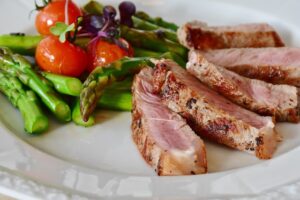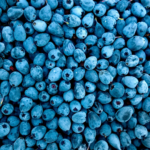It might be challenging to distinguish fact from fiction because there is so much information out there on losing weight. Here are 10 typical weight loss myths debunked.
“You gain weight when you eat carbs.”
Carbohydrates, when consumed in moderation and as a part of a healthy diet, do not, by themselves (i.e., without butter, creamy sauces, or other additives), cause weight gain.
When trying to lose weight, avoid frying starchy meals and instead choose whole grain and wholemeal carbohydrates like brown rice, wholemeal bread, and potatoes with the skins on to maximize your intake of fiber.
“The only way to reduce weight is through an extreme exercise program.”
It’s untrue. Making small, long-lasting improvements will help you lose weight successfully.
That entails increasing your level of everyday physical activity. Adults should engage in 150 minutes of physical exercise each week, such as rapid walking or cycling. Overweight individuals may likely require more physical activity to achieve their weight loss goals.
You must burn more calories than you consume in order to lose weight. Less eating, more exercise, or—even better—a combination of the two—can help you reach your goal.
“Healthier food is more expensive.”
It could appear that better foods are more costly than their less-healthy counterparts. However, you’ll probably discover that your meals end up being less expensive if you try substituting components with healthier ones.
For instance, choosing less expensive meat cuts and combining them with less expensive substitutes like beans, pulses, and frozen vegetables will make the meat last longer in casseroles or stir-fries.
‘Foods with “low fat” or “reduced fat” labels are always a good choice.’
Be careful. Foods with the designation “low fat” can only have a certain level of fat in them in order to utilize that label lawfully. It should include less fat than the full-fat equivalent if a food is labeled “low-fat” or “reduced fat,” but that doesn’t necessarily mean it’s a healthy option: To find out how much fat is in it, read the label. Some meals that are low in fat could simultaneously be rich in sugar.
“The best way to lose weight is to starve.”
It’s doubtful that crash diets will cause long-term weight loss. In fact, they occasionally cause weight gain over the long run.
The primary issue is that it’s very difficult to keep up with this kind of diet. Because the type of food ingested during crash diets might be restricted, you can also be missing out on important nutrients. Due to your body’s lack of energy, you could start to yearn for high-fat and high-sugar foods. This may result in overeating those foods and calories, which will result in weight gain.
“Skipping meals is an effective weight-loss strategy.”
Meals should not be skipped. You must consume fewer calories overall and burn more calories through activity if you want to lose weight and keep it off. However, missing meals completely can make you feel lethargic and deprive you of important nutrients. Additionally, you might eat high-fat and high-sugar snacks more frequently, which could lead to weight gain.
“All weight loss supplements are safe to take.”
Not all weight loss supplements work or are secure to use. Your GP may prescribe one of several medications to help you lose weight. Additionally, there are additional unapproved, unprescribed weight-loss treatments on the market that could contain dangerous substances.
Consult your general practitioner or another healthcare expert if you are worried about your weight.
“Eliminating all snacking can aid in weight loss.”
The sort of food is the issue while attempting to reduce weight, not snacking itself.
Many people, especially those who lead active lifestyles, require a snack in between meals to keep their energy levels up. Instead of crisps, chocolate, and other high-sugar, high-fat snacks, opt for fruit or vegetables.
“Water consumption promotes weight loss.”
Although it doesn’t make you lose weight, water does keep you hydrated and may encourage you to eat fewer snacks. Water is necessary for overall wellbeing and healthy health. When you’re hungry and thirsty at the same moment, you might eat more snacks.










